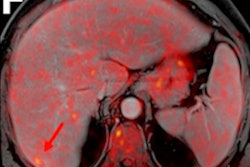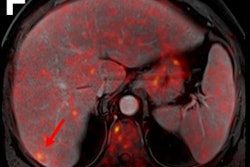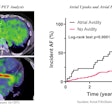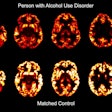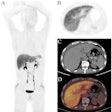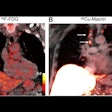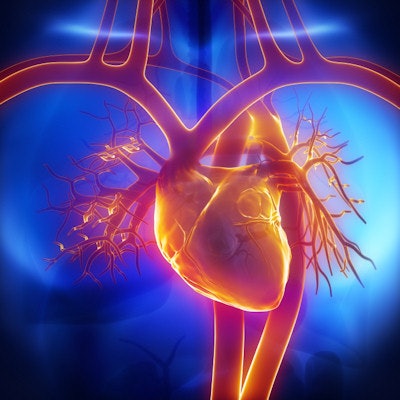
Researchers using a hybrid PET/MRI scanner detected a link between degenerative mitral valve prolapse and F-18 FDG uptake, a surrogate for myocardial inflammation and/or ischemia. The results, published online May 27 in JAMA Cardiology, apply to asymptomatic patients as well, suggesting an ongoing subclinical disease process.
In their observational study, the researchers looked at patients who were referred for mitral valve repair and underwent hybrid PET/MRI. A research team led by Dr. Marc Miller from the Helmsley Electrophysiology Center at Icahn School of Medicine at Mount Sinai in New York City, categorized patients by the presence and pattern of FDG uptake and late gadolinium enhancement on MRI, as well as the severity of ventricular arrhythmias and the indication for mitral valve surgery.
"The findings of this pilot study indicate that myocardial inflammation may occur in patients with mitral valve prolapse and degenerative mitral regurgitation and suggests a potential link to myocardial fibrosis," the authors wrote. "Importantly, these surrogates for myocardial inflammation and fibrosis were found in asymptomatic patients with significant mitral regurgitation who did not have any objective indications for surgery."
A subset of patients with mitral valve prolapse may develop ventricular arrhythmias and/or sudden cardiac death at a young age. However, they will not display any perceivable myocardial dysfunction stigmata or symptoms. Could inflammation be the culprit?
Miller and colleagues hypothesized that patients with significant degenerative mitral regurgitation due to mitral valve prolapse and a history of ventricular ectopy have evidence of occult inflammation in addition to myocardial fibrosis. They posited the inflammation could be detected via F-18 FDG PET and MRI.
The researchers enrolled 20 prospective patients from January 2018 to June 2019 with chronic degenerative mitral regurgitation. All patients had at least three to four mitral regurgitations and were referred for mitral valve surgery. Each patient underwent simultaneous cardiac F-18 FDG PET and MRI with late gadolinium enhancement imaging on a hybrid PET/MRI system (Biograph-mMR, Siemens Healthineers). Ventricular arrhythmias were categorized as either complex (n = 12) or minor (n = 8).
The researchers detected focal or focal-on-diffuse uptake of F-18 FDG (PET positive) in 17 of 20 patients (85%). The FDG uptake coexisted with areas of late gadolinium enhancement (PET/MRI positive) in 14 patients (70%). All five asymptomatic patients had normal ventricular indices and absence of any surgical indications, and they were PET/MRI positive.
The findings indicate that patients with degenerative mitral valve prolapse and ventricular ectopy have evidence of subclinical myocardial inflammation or ischemia, according to Miller and colleagues.
Because the distribution of FDG uptake matched that of late gadolinium enhancement and the PET-positive and late gadolinium enhancement-positive segments tended to be adjacent as well as concordant, which raises the question of "whether there is an inflammatory component of the disease process that is prodromal to the development of left ventricular fibrosis," the authors wrote.
More studies are needed to discover whether the observed FDG uptake equates to myocardial inflammation, increased metabolic demand, or myocardial ischemia. Also, does an association exist between the degree of FDG uptake and the severity of ventricular arrhythmias in patients with mitral valve prolapse? What about the distribution and burden of FDG uptake -- does it affect overall prognosis?
"Future studies will help define whether imaging for inflammation and myocardial scar can identify those patients with mitral valve prolapse who are at higher risk for malignant ventricular arrhythmias and whether such imaging is warranted in patients with severe mitral regurgitation under active surveillance," the authors concluded.






